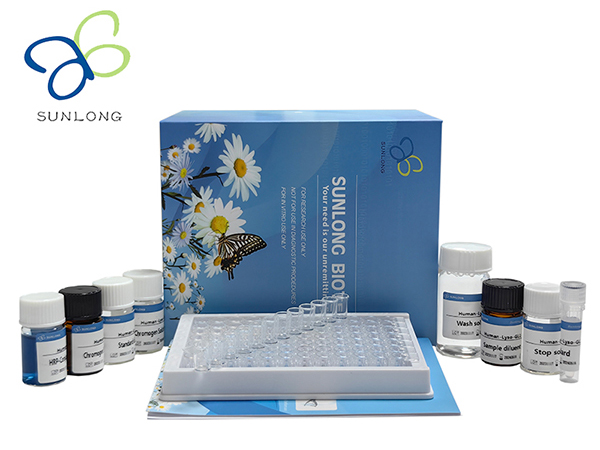Specifications:
| Application | ELISA-Based Assays |
| Storage Temperature | 2-8°C |
| Product Type | Elisa Kit |
| Product Grade | Molecular Biology |
The Human Hepcidin ELISA Kit is a sensitive and specific assay designed for the quantitative detection of Hepcidin levels in human serum, plasma, urine, culture media, and other biological fluids. Hepcidin is a key regulator of iron metabolism, and this kit is essential for research in iron homeostasis, anemia, and related disorders.
Sample Preparation
1. Serum Preparation
- Collect whole blood and allow it to clot at room temperature for 10–20 minutes.
- Centrifuge at 2,000–3,000 rpm for 20 minutes to separate the serum.
- Re-centrifuge if precipitates appear during storage.
2. Plasma Preparation
- Collect whole blood into tubes containing anticoagulants (e.g., EDTA or citrate).
- Incubate at room temperature for 10–20 minutes.
- Centrifuge at 2,000–3,000 rpm for 20 minutes to obtain plasma.
- Re-centrifuge if necessary.
3. Urine Samples
- Collect urine in aseptic tubes.
- Centrifuge at 2,000–3,000 rpm for 20 minutes and carefully collect the supernatant.
- Re-centrifuge if precipitates form during storage.
4. Cell Samples
- For cell secretions, collect culture supernatants in aseptic tubes and centrifuge at 2,000–3,000 rpm for 20 minutes.
- For intracellular components:
- Dilute cells in PBS (pH 7.2–7.4) at 1×10⁷/mL.
- Disrupt cells via repeated freeze-thaw cycles.
- Centrifuge at 2,000–3,000 rpm for 20 minutes and collect the supernatant.
5. Tissue Samples
- Cut and weigh tissue samples, then freeze in liquid nitrogen and store at -80°C.
- Homogenize samples in PBS (pH 7.4) at 4°C.
- Centrifuge at 2,000–3,000 rpm for 20 minutes and collect the supernatant.
Important Notes
- Perform ELISA assays as soon as possible after sample collection.
- Store samples at -20°C if immediate testing is not feasible.
- Avoid repeated freeze-thaw cycles to preserve sample integrity.
- Do not use samples containing sodium azide (NaN₃) as it inhibits HRP activity.
Applications
- Iron Homeostasis Research:
- Study Hepcidin as a key regulator of iron absorption and distribution.
- Anemia and Iron Disorders:
- Investigate Hepcidin levels in conditions such as anemia of chronic disease, iron deficiency anemia, and hemochromatosis.
- Metabolic Studies:
- Explore the relationship between Hepcidin and metabolic disorders.
- Inflammation Research:
- Study the role of Hepcidin as an acute-phase reactant in inflammatory conditions.
- Therapeutic Development:
- Evaluate drugs targeting iron metabolism and Hepcidin regulation.
Advantages
- High Sensitivity and Specificity:
- Detects low levels of Hepcidin with minimal cross-reactivity or interference.
- Wide Sample Compatibility:
- Validated for serum, plasma, urine, cell culture supernatants, and tissue homogenates.
- Ease of Use:
- Includes pre-coated plates and ready-to-use reagents.
- Reproducibility:
- Provides consistent and reliable results across multiple experiments.
Storage and Stability
- Store all kit components at 2–8°C.
- Avoid repeated freeze-thaw cycles to ensure assay reliability.
The Human Hepcidin ELISA Kit is a vital tool for researchers studying iron metabolism, anemia, and related conditions. Its precision, user-friendly design, and broad compatibility make it indispensable for various clinical and experimental applications.




 0
0
